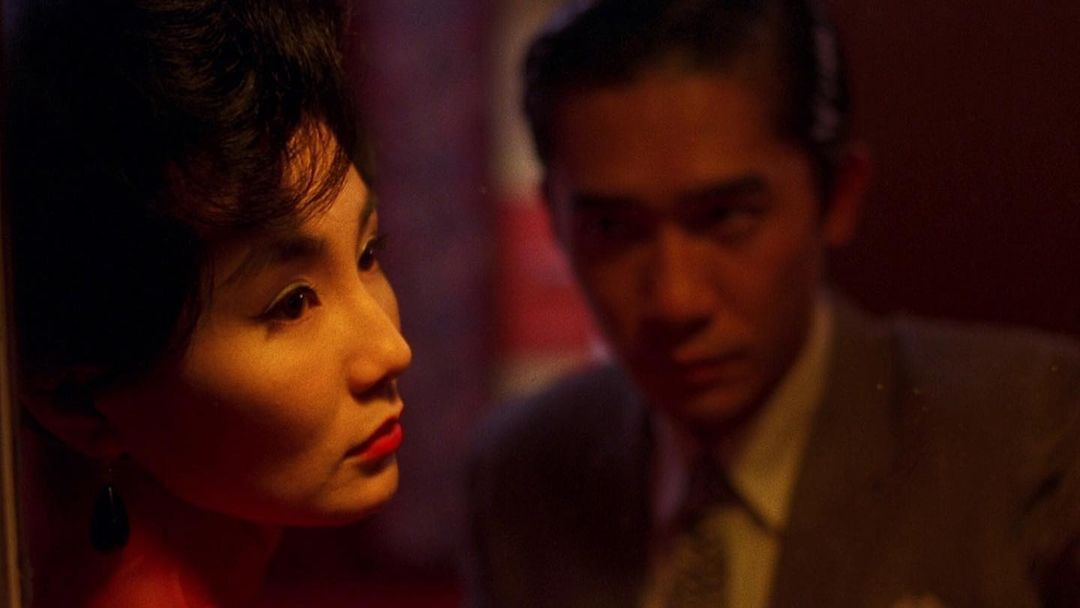
Wong Kar-wai OSTs
by remi mourany
·
I was spellbound by Wong Kar Wai's "Days of Being Wild," my first exposure to his work. Forever linked to it is the Latin music by Xavier Cougat and his orchestra.
Shortly after, "Chungking Express" captivated me, especially with its lingering music that continued to haunt me long after the credits rolled. The inclusion of Mamas and Papas' "California Dreaming" reignited memories of youth in the mid-90s. Additionally, Esther Phillips' sultry rendition of "What a Difference a Day Made" in "Chunking Express" left a lasting impression.
Following that, "Happy Together" left a profound impact on me, perhaps becoming my favorite Wong Kar Wai film. The added bonus of hearing the voice of one of my idols, Frank Zappa, particularly in " against the hypnotic and nocturnal backdrop of Buenos Aires, was unforgettable. Moreover, tracks from the album "Chunga's Revenge" by Frank Zappa, notably, left a lasting impression.
However, what truly moved me in "Happy Together" were the pieces by Astor Piazzolla, resounding through melancholic taxis or in sublime, untuned tangos that brought tears to my eyes. The bewitching voice of Kaitano Veloso and his "Kukuruku Paloma" against the backdrop of the mesmerizing images of Iguassu Falls further deepened my appreciation, five years before Pedro Almodovar's use of the same song in his work.
After "Happy Together," I ventured into "Ashes of Time," an earlier work by Wong Kar-Wai, and found myself in a completely different narrative landscape—a tale brimming with noise and fury, set against a yellow desert and underscored by a markedly different orchestral score by Frankie Chan, perfectly complementing Maggie Chung's captivating yet youthful visage.
Soon after, I encountered Maggie Chung once again in "In The Mood For Love," Wong Kar Wai's worldwide sensation, featuring the iconic theme of Yumeji, composed by Shigeru Umebayashi. This theme, a favorite of the obsessive Wong Kar Wai, was recurrent throughout the film, drawing from a piece by Japanese filmmaker Seijun Suzuki, titled "Yumeji." Wong's clever reuse of this theme in various contexts, including an ad and a different arrangement with the harmonica as a soloist in his only American film, showcases his penchant for obsession.
"In The Mood For Love" also left its mark with another poignant piece by Michael Galasso, heard in a memorable sequence at the Angkor Wat temple, accompanying Tony Leung's poignant search.
In Wong Kar Wai's subsequent film, "2046," I eagerly rediscovered Shigeru Umebayashi, whose music underscored the emotional depths of Zhang Ziyi's tears, followed by those of Gong Li. Wong's astuteness was evident in his reuse of this music even in an institutional film, solidifying his distinct style. Moreover, "2046" surprised me with the unexpected return of a theme by Georges Delerue, first heard in Truffaut's "Vivement Dimanche," adding layers of depth to the narrative. Additionally, the neoclassical adagio by the band Secret Garden lent a poignant touch to the imagery, further enhancing the film's impact. This musical journey continued in "La Main," a short film within the anthology "Eros," where Wong's collaboration with Shigeru Umebayashi resonated in a familiar universe.
Continuing the musical journey, Wong Kar Wai's latest film, "The Grandmaster," once again stirred emotions, this time evoking tears from Tony Leung. Reflecting on past favorites, "2046" led me back to Nat King Cole, particularly his rendition of the beautiful Christmas song that never fails to send shivers down my spine. These nostalgic moments transported me to the Latin roots of my affection for Juan Carvajal. Driven by a deep musical connection, I couldn't shake the feeling that Wong Kar Wai had raided my music collection on a summer night. Despite his proficiency in Latin, Wong's fondness for old Chinese songs was evident, notably in "In The Mood For Love." I was pleasantly surprised to rediscover these tunes in a short film he had previously released, such as "Wawang Nyanwa Sacred Wong."
Wong's eclectic taste extended to pop songs, notably in his first feature film, "As Tears Go By" (1989), where Maggie Cheung's tears first captivated audiences. "The Grandmaster" and "Eros" introduced me to more delightful tunes, including "Celsie," adding to my addiction to Wong's musical selections.
In "The Fallen Angels," which I caught at the end of the '90s, Wong Kar Wai's penchant for Cantopop resurfaced, adding to his obsessive musical repertoire. I particularly enjoyed Massive Attack's revisiting of Karma Koma, adding a unique flavor to the Hong Kong setting.
Furthermore, Laurie Anderson's ethereal voice and Brian Eno's atmospheric accents transported me into Wong's cinematic world. Even a simple black and white blouse seemed to perfectly complement the gloomy, nocturnal atmosphere of "The Fallen Angels." "My Blueberry Nights" introduced me to Norah Jones' soulful tunes, which not only graced the video but also resonated behind the screen, enriching the narrative. Chad Marshall, also known as Cat Power, left a lasting impression with his melancholic "The Greatest Future."
In "The Grandmaster," Stefano Lentini's post-classical or post-modern compositions further enhanced the film's ambiance. Wong's penchant for musical exploration continued with a sequel to Bach's Cello Suite, featured in a short film for the collective project "To Each His Cinema."
Surrounded by a diverse array of music, I thought I was about to emerge from this intricate musical maze. However, as I glanced at "The Grandmaster" one last time, I stumbled upon a theme I hadn't anticipated: Ennio Morricone's iconic "Once Upon a Time in America." Realizing my obsession with Wong's musical selections, I resigned myself to the fact that I wouldn't be escaping anytime soon.
Check out t-shirts here>>









